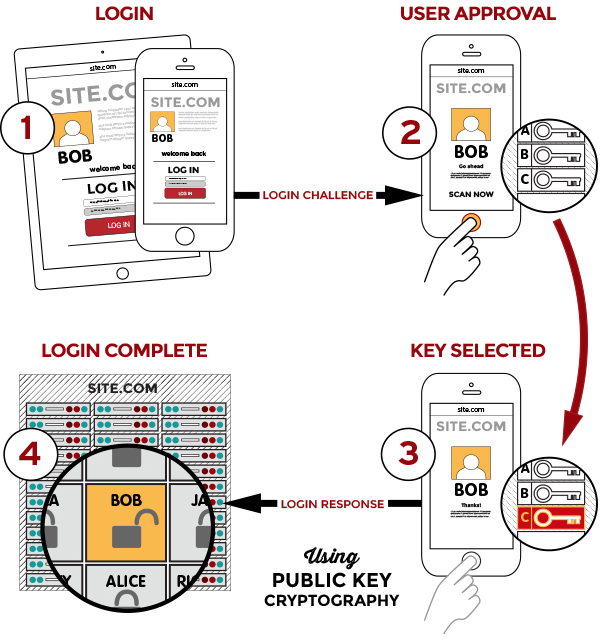In context: Tech companies have been trying to get rid of passwords for years. Users often have too many passwords to keep track of, and alone they aren't very secure. This week, Apple, Google, and Microsoft have announced plans to strengthen their cooperation towards easy, passwordless logins between their platforms.

Google and Microsoft already support the FIDO Alliance in its effort to build a set of passwordless login protocols. Marking World Password Day, Apple has joined the cause too. All three tech giants have pledged to make logins simpler across all their devices and operating systems over the next year.
In 2019, Microsoft started using FIDO certification to expand the number of sites and services that used Windows Hello to sign in with PINs, fingerprints, and facial recognition. However, this only works for Windows. That same year, Google introduced the ability to use Android phones as physical two-factor authentication devices using FIDO.

The new plan will let users with Microsoft, Android, or Apple devices use FIDO passkeys to log in to websites and apps across operating systems and browsers without passwords. For example, a user will be able to log into a site on Google Chrome running on Windows by simply unlocking their iPhone. Users will also be able to effortlessly transfer their FIDO credentials for all their logins to new devices.
This movement promises logins that are not only easier but also more secure than passwords. The FIDO Alliance says its passkeys, using public key cryptography, are almost impossible to phish and remain solely on users' devices. Maybe then we'll stop seeing "123456" as the most common password year after year.